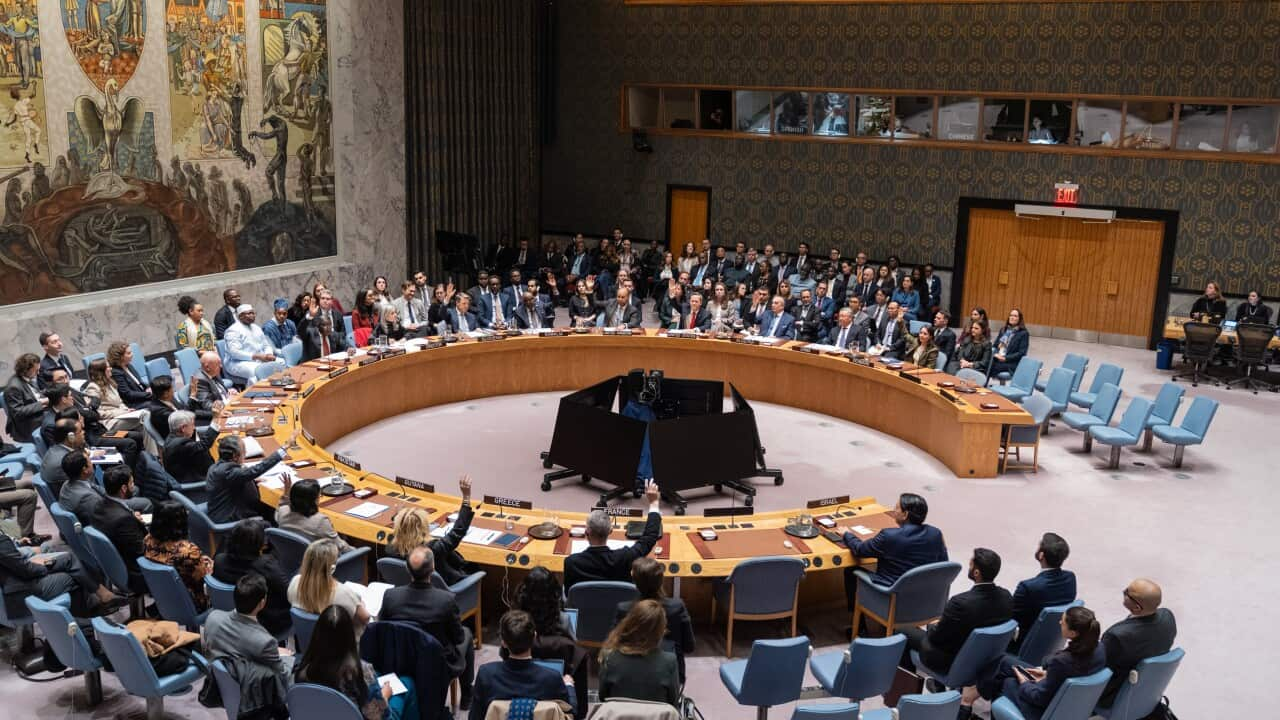The United Nations Security Council has voted in favour of a US-drafted resolution bolstering United States President Donald Trump's Gaza peace plan that includes the deployment of an international force and a path to a future Palestinian state.
There were 13 votes in favour of the text, which the US later heralded as "historic and constructive", with only Russia and China abstaining, but no vetoes.
Israel and Hamas, the Palestinian militant group that rules Gaza, agreed last month to the first phase of Trump's 20-point plan for the enclave — a ceasefire in their two-year war and a hostage-release deal.
But the UN resolution is seen as vital to legitimising a transitional governance body and reassuring countries that are considering sending troops to Gaza.
Trump hailed the vote, saying it would lead to "further peace all over the world".
"This will go down as one of the biggest approvals in the History of the United Nations," he wrote on social media platform Truth Social.

US ambassador to the UN Mike Waltz said after the vote that "today's resolution represents another significant step that will enable Gaza to prosper and an environment that will allow Israel to live in security".
What's in the plan?
The peace plan authorises the creation of an International Stabilisation Force (ISF) that would work with Israel and Egypt and newly trained Palestinian police to help secure border areas and demilitarise the Gaza Strip.
The ISF is mandated to work on the "permanent decommissioning of weapons from non-state armed groups", protecting civilians and securing humanitarian aid corridors.
It also authorises the formation of a 'Board of Peace', a transitional governing body for Gaza — which Trump would theoretically chair — with a mandate running until the end of 2027.
In convoluted language, the resolution also mentions a possible future Palestinian state.

The resolution's text says that "conditions may finally be in place for a credible pathway to Palestinian self-determination and statehood" once the Palestinian Authority — which exercises limited control over the occupied West Bank — has carried out a reform program and Gaza's redevelopment has advanced.
"The United States will establish a dialogue between Israel and the Palestinians to agree on a political horizon for peaceful and prosperous coexistence," it says.
The resolution also calls for the resumption of humanitarian aid deliveries at scale through the UN, ICRC and Red Crescent.
How have Hamas and Israel reacted?
Hamas has rejected the resolution, saying it fails to respect the "demands and rights" of the Palestinians.
"This resolution does not meet the level of our Palestinian people's political and humanitarian demands and rights," the militant group said in a statement following the adoption of the resolution.
The statement also criticised the establishment of an international force whose "mission includes the disarmament" of Palestinian groups in Gaza.
"The resolution imposes an international trusteeship on the Gaza Strip, which our people, its forces, and its constituent groups reject," the statement continued.
The Palestinian Authority, meanwhile, issued a statement welcoming the resolution and said it is ready to take part in its implementation.
Diplomats said the authority's endorsement of the resolution last week was key to preventing a Russian veto.
Ahead of the vote, Israeli Prime Minister Benjamin Netanyahu said his country firmly rejected a future Palestinian state and pledged to demilitarise Gaza "the easy way or the hard way".
For the latest from SBS News, download our app and subscribe to our newsletter.

